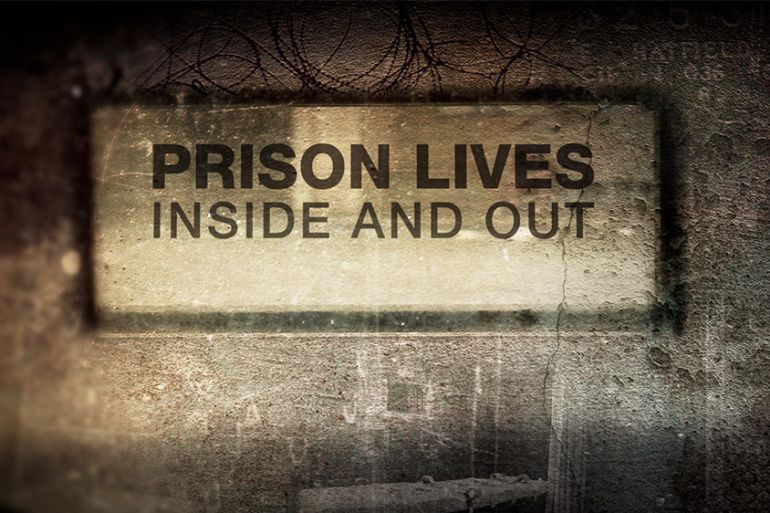
Prison Lives: Inside and Out
A special series of prison documentaries from life on the inside to adjusting to life on the outside.

Whether it is looking at fragile lives of former child prisoners in Palestine, survivor’s guilt of Iranians living in exile, or a ground-breaking prison therapy project in Lebanon, we highlight some of the most harrowing, uplifting and thought-provoking stories from behind bars and beyond.
12 Angry Lebanese
Keep reading
list of 4 itemsFull jury panel seated on third day of Trump’s New York hush-money trial
Police make multiple arrests in ‘largest gold theft in Canadian history’
Woman, seeking loan, wheels corpse into Brazilian bank
45 inmates in Lebanon’s most notorious prison take part in a ground-breaking drama therapy project – their version of Twelve Angry Men .
|
|
A film by Zeina Daccache
Drama therapist Zeina Daccache made headlines by doing the impossible: she got access to one of Lebanon’s toughest men’s prisons (Roumieh) to work with 45 inmates on an adaptation of Reginald Rose’s play Twelve Angry Men .
After 15 months of rehearsals, the good and the great of Beirut society, from the Prosecutor General to the Minister of Interior, were invited to sit in a makeshift theatre and watch a group of convicted murderers, rapists and drug dealers act out a parable about the failure of the criminal justice system.
It was a life-changing experience for the inmates and a groundbreaking project which opened the doors to a usually closed world.
The full documentary can be seen on Al Jazeera English from Thursday, July 6, 2017 at the following times GMT: Thursday: 2000; Friday: 1200; Saturday: 0100; Sunday: 0600; Monday: 2000; Tuesday: 1200; Wednesday: 0100; Thursday: 0600.
Omar
One man’s story reveals the social and psychological barriers that so many low-income African-American men face in the context of prison and release.
|
|
A film by Tod Lending
One man’s story reveals the social, economic and psychological barriers that so many low-income African-American men face in the context of incarceration and release.
A look at existing support structures and those needed to help former prisoners successfully re-enter their families and neighbourhoods.
The compelling and highly personal film reveals the individual, family, and community pathways that can lead to social change.
Read the filmmaker’s view for more.
The full documentary can be seen on Al Jazeera English from Thursday, July 13, 2017 at the following times GMT: Thursday: 2000; Friday: 1200; Saturday: 0100; Sunday: 0600; Monday: 2000; Tuesday: 1200; Wednesday: 0100; Thursday: 0600.
When the Boys Return
In Hebron, a small group of Palestinian youth meet weekly as they try to come to terms with their experience of imprisonment in Israeli jails.
|
|
A film by Tone Andersen
In Hebron in the West Bank, 11 young Palestinian men come together each week in a room in the YMCA. All have spent time in Israeli jails, just a few of the 7,500 Palestinian minors aged 12-18 who have gone through the prison system over the past 11 years.
The arrests of these youth, undertaken by the Israeli army, often come at night. The most common charge is stone-throwing and the average sentence is two years.
On release, many ex-detainees display symptoms of post-traumatic stress disorder (PTSD) and almost all find it difficult to slip back into the position they occupied before arrest in their families and communities.
“When the Boys Return” follows the Hebron group over 10 weeks as they take part in a structured course of therapy, run by counsellor Nader Khallaf, aimed at helping re-integration into normal life.
Among the group is Mohammad Jamil, 15 and newly-released from prison when filming begins, and Hamze Mahfouz, 17. Mohammad spends some days at demonstrations and some nights wandering the streets of his neighbourhood, coming close to re-arrest several times during filming. Eventually persuaded to enrol on a vocational course in car mechanics, he begins at last to settle, much to his own surprise.
Hamze is articulate and polite, but struggles with aggression, often demonstrated through physical assaults on his brother and is desperate to be the first son in his family to sit, and pass, the Tawjihi (Senior High School Exam). Mohammad, Hamze and all the group live with the fear that they could be re-arrested and taken back into prison at any time.
This subtle, moving and well-crafted film lays bare the challenges the youth face as they try to rebuild their lives in the face of the ongoing Israeli occupation of the West Bank.
The full documentary can be seen on Al Jazeera English from Thursday, July 20, 2017 at the following times GMT: Thursday: 2000; Friday: 1200; Saturday: 0100; Sunday: 0600; Monday: 2000; Tuesday: 1200; Wednesday: 0100; Thursday: 0600.
My Stolen Revolution
Haunted by survivor’s guilt, an exiled Iranian filmmaker begins an emotional quest to find former activists imprisoned during the 1979 revolution.
|
|
A film by Nahid Persson Sarvestani
Filmmaker Nahid Persson Sarvestani remembers when, as a young communist activist, she fled Iran after the 1979 revolution. She left behind her fellow activist friends and her brother, Rostam, who were imprisoned during the revolution.
After six months in prison, her brother was executed. Ever since, Nahid has been haunted by survivors guilt of abandoning her brother and her friends.
Now living in Sweden, Nahid confronts her past and begins an emotional quest to find her surviving friends in exile. And when she finds them, she learns about their horrific ordeal in prison, and about her brothers final days before his execution.
The full documentary can be seen on Al Jazeera English from Thursday, July 27, 2017 at the following times GMT: Thursday: 2000; Friday: 1200; Saturday: 0100; Sunday: 0600; Monday: 2000; Tuesday: 1200; Wednesday: 0100; Thursday: 0600.